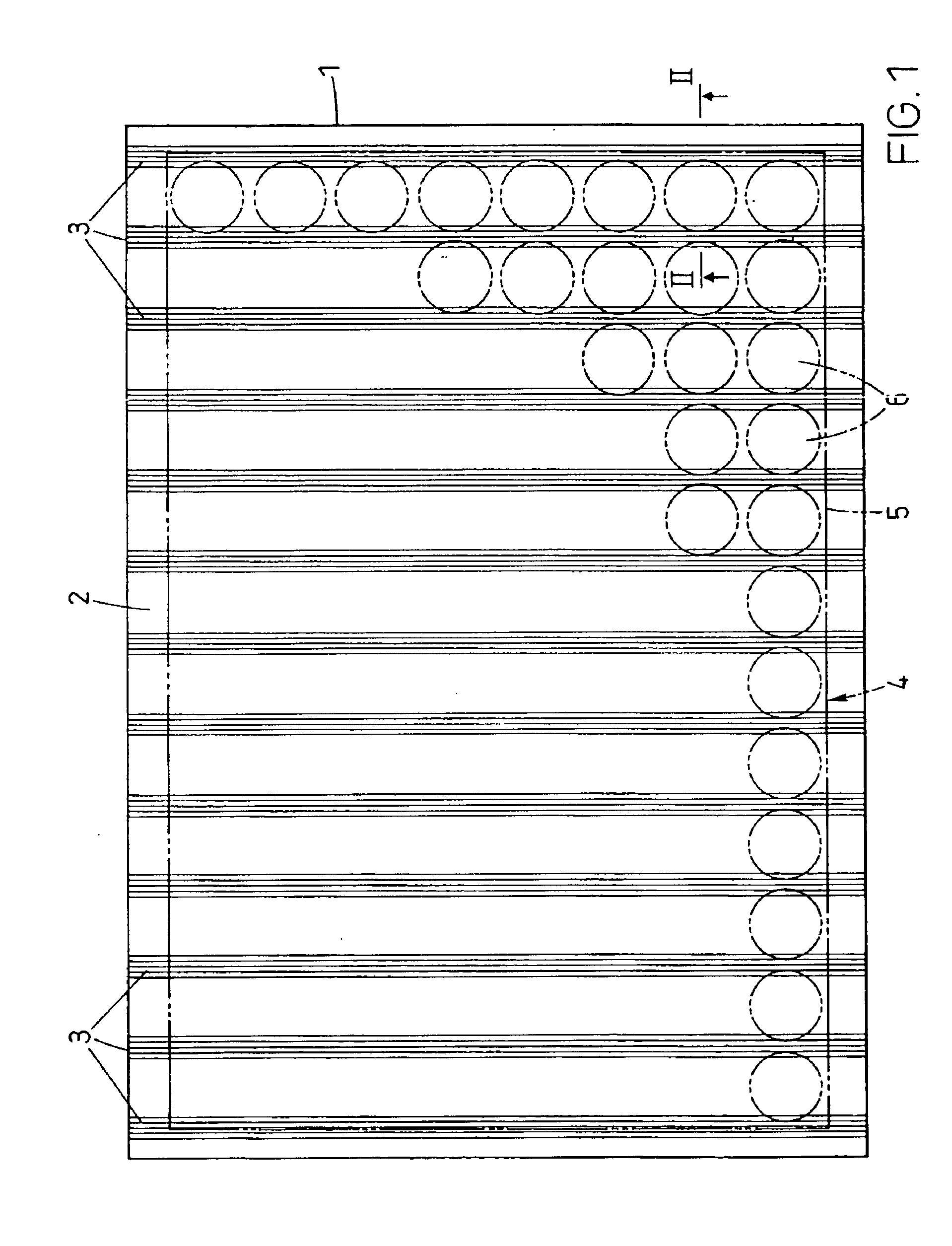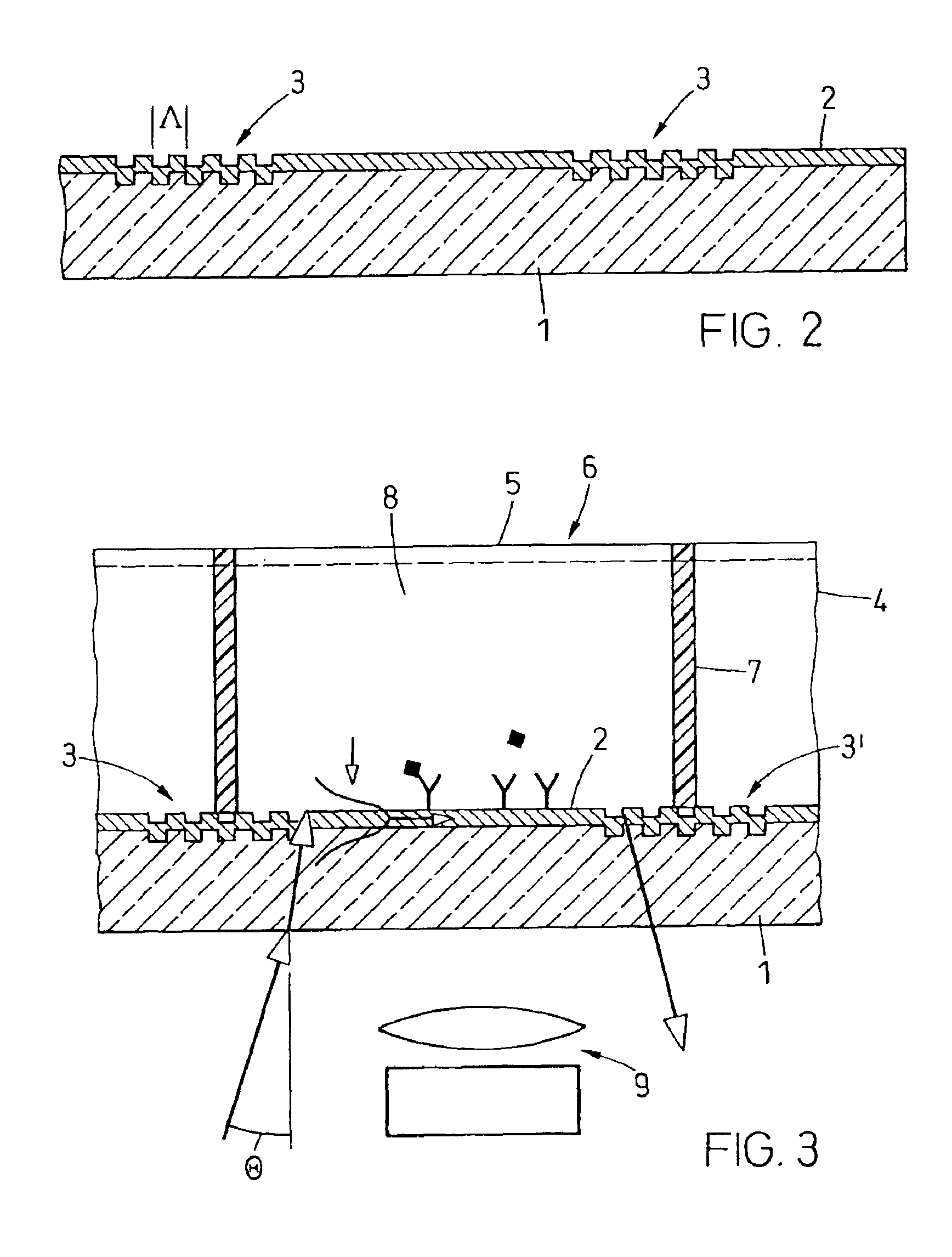Waveguide plate and process for its production and microtitre plate
- Summary
- Abstract
- Description
- Claims
- Application Information
AI Technical Summary
Benefits of technology
Problems solved by technology
Method used
Image
Examples
example 1
Design of a Waveguide Plate According to the Invention and Arrangement of Sample Compartments to be Formed by the Combination with Said Waveguide Plate
[0126]The waveguide plate according to the invention (FIGS. 1, 2 are schematically and not according to scale) comprises a glass substrate, for example of glass AF 45 from Schott DESAG, with dimensions of 102 mm×72 mm and a thickness of 0.7 mm, carrying on one surface a waveguiding layer 2 of Ta2O5 of 150 nm thickness. The refractive index is, dependent on the manufacturing method, for example 2.11 at 633 nm. Besides Ta2O5, also other materials are suited for the waveguiding layer, especially Nb2O5, TiO2, ZrO2, Al2O3, SiO2-TiO2, Hf02, Y2O3, SiOxNy, Si3N4, HfOxNy, AIOxNy, TiOxNy, MgF2 or CaF2.
[0127]On the surface carrying the waveguiding layer 2, several coupling grating strips 3 are arranged in parallel to and separate from each other, extending in parallel lines over the whole width of the waveguide plate. The width of each of the co...
example 2
Characterization of a Waveguide Plate According to the Invention
[0130]A waveguide plate according to Example I (waveguiding layer of Ta2O5, refractive index n=2.11 at 633 nm ) is characterized. The waveguide plate is designed for use as a base plate for an arrangement of 96 sample compartments (provided as flowthrough cells) in a geometrical arrangement according to FIG. 1 (8 rows×12 columns of sample compartments). For the characterization of the physical properties of the waveguide plate, the following parameters shall be determined: (a) coupling angle and (b) the halfwidth of the resonance angle for maximum incoupling, (c) the lateral position (“x-position”) for optimum incoupling on a coupling grating strip and (d) its halfwidth, (e) the incoupling efficiency, (f) the number and size of scattering centers per area unit of the region of the sample compartments, analysis of (g) the excitation light profile for the region of the sample compartments, (h) background luminescence at t...
PUM
 Login to View More
Login to View More Abstract
Description
Claims
Application Information
 Login to View More
Login to View More - R&D
- Intellectual Property
- Life Sciences
- Materials
- Tech Scout
- Unparalleled Data Quality
- Higher Quality Content
- 60% Fewer Hallucinations
Browse by: Latest US Patents, China's latest patents, Technical Efficacy Thesaurus, Application Domain, Technology Topic, Popular Technical Reports.
© 2025 PatSnap. All rights reserved.Legal|Privacy policy|Modern Slavery Act Transparency Statement|Sitemap|About US| Contact US: help@patsnap.com



